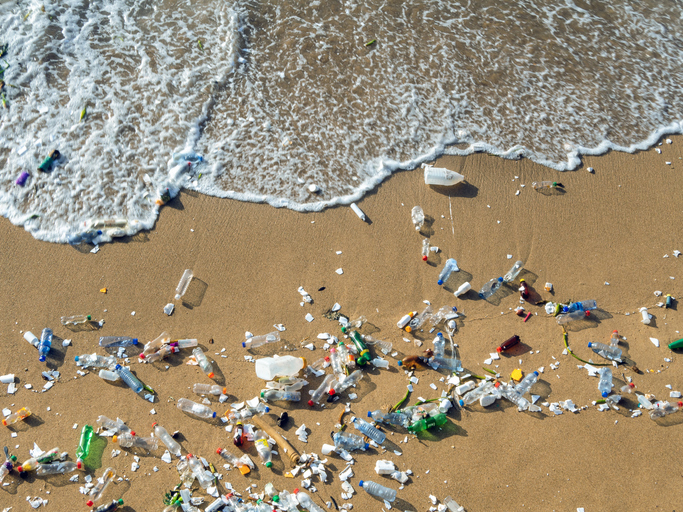
Coronado is one step closer to a potential, single-use plastics reduction ordinance.
City Council on Sept. 17 directed city staff to curate information about the language of a potential ordinance, as well as to clarify which state laws are upcoming that may accomplish the same thing.
“I don’t want to do something that’s already going to happen by the state,” said Council Member Carrie Downey. “I don’t want competing ordinances.”
The rest of the council shared her sentiment. California has already enacted some single-use plastic restrictions on the state level, but more are on the way.
The council’s reasoning, then, is that it would be redundant to enact an ordinance on an item that would be superseded by a state ban anyway. The question of state restrictions hinges on the state’s Plastic Pollution Prevention and Packaging Producer Responsibility Act.
The bill was signed into law in 2022, but is being implemented in phases. Its ultimate goal is that 100% of packaging and single-use plastic food ware is recyclable or compostable, and that 65% of single-use plastic packaging and food ware is recycled.
But – that deadline for that goal is 2032. So far, the act has only reached its first milestone: publishing a list of recyclable and compostable categories.
Council Member John Duncan noted that Coronado could make an impact in the meantime. The discussion arose after Duncan in April filed a Policy No. 2 request to bring the matter before council. Coronado youth in March addressed city council, asking for the city to pass a plastic reduction ordinance.
Although the council has not yet decided how restrictive an ordinance would be, the council as whole seemed amenable to a reduction ordinance during deliberations.
Coronado, National City, and Chula Vista are the only coastal communities in San Diego County that do not already have a plastic reduction ordinance. Coronado city staff outlined five types of single-use items commonly included in other coastal communities’ ordinances, which Coronado could consider for its potential ordinance:
- Plastic bags: prohibit or charge for their use
- Polystyrene foam: Bans for food containers and coolers, or as packaging for items like toys
- Plastic utensils: Ban on plastic, with biodegradable options available on request
- Other plastics: Bans on straws, stirrers, food packaging
- Plastic water bottles: Some San Diego County cities restrict city spending on or distribution of single-use bottles at city-sponsored or permitted events. Some also restrict their size. Within the county, there is no a ban on stores selling single-use bottles.
There are no state laws regarding polystyrene foam. Carlsbad, Solana Beach, and Encinitas are the only communities with restrictions on all five types of single-use items. Carlsbad and Encinitas both also restrict the release of balloons. Del Mar and Imperial Beach restrict all but single-use bottles.
Statewide, some regions have more restrictive policies than those in San Diego County. In South Lake Tahoe, for example, sales of plastic water bottles under one gallon were banned within city limits in 2023. Truckee has implemented a similar ban starting in 2025. Both cities lift these bans during emergencies.
A state bill prohibiting carryout bags starting in January 2026 passed in the Senate earlier this month, but it has not been signed yet. It would still allow recycled paper bags to be distributed for a fee. Another bill restricting plastic and foam in major coastal resorts (defined by hotels with a golf course on site) has been introduced.
Much of last week’s conversation centered on Carlsbad’s 2023 ban on all single-use takeout items. There, restaurants must serve customers in either reusable or compostable containers. City Council Member Casey Tanaka asked for more information on that law and its implementation.
“I think the more restrictive a ban is, the more it would make a difference, but the more restrictive a ban is, the more I think it should come from the public,” Tanaka said. “My preference would be to see if the public would enact a ban on itself.”
Restaurants should also be consulted, City Council Member Mike Donovan suggested. He wanted more information about how bans might impact businesses.
“We know a lot of our businesses here are on pretty thin margins,” Donovan said.
Duncan agreed, and said any potential ban on single-use utensils or takeout containers could have a grace period, allowing restaurants to deplete their existing inventory first.
“Our citizens go down to Imperial Beach (where this is a ban on single-use plastics), and they don’t come back and tell us it’s horrible,” Duncan said. “They don’t even notice. Implementation, I think, would be pretty seamless.”
California has been enacting laws against single-use plastics since 2016, when it mandated that plastic grocery bags contain at least 40% recycled materials. In 2022, it required that single-use utensils, plastic straws, and condiments could only be provided upon customer request.
In 2023, the state prohibited plastic water bottles in hotels with more than 50 rooms. Starting in 2025, bags for pre-checkout items at stores must be compostable or recyclable (for example, the bags customers use for produce or meat).
City Council did not take action during its Sept. 17 meeting, aside from asking staff to return with more information and examples of what language a potential ordinance could include. Overall, the temperature of the council seemed open to some type of restriction, but the council hoped to solicit input from the business community on how to do so smoothly and conveniently.
“Paper straws kind of suck,” Mayor Richard Bailey said. “I think even my environmentalist friends would agree. So I do want to be realistic.”




